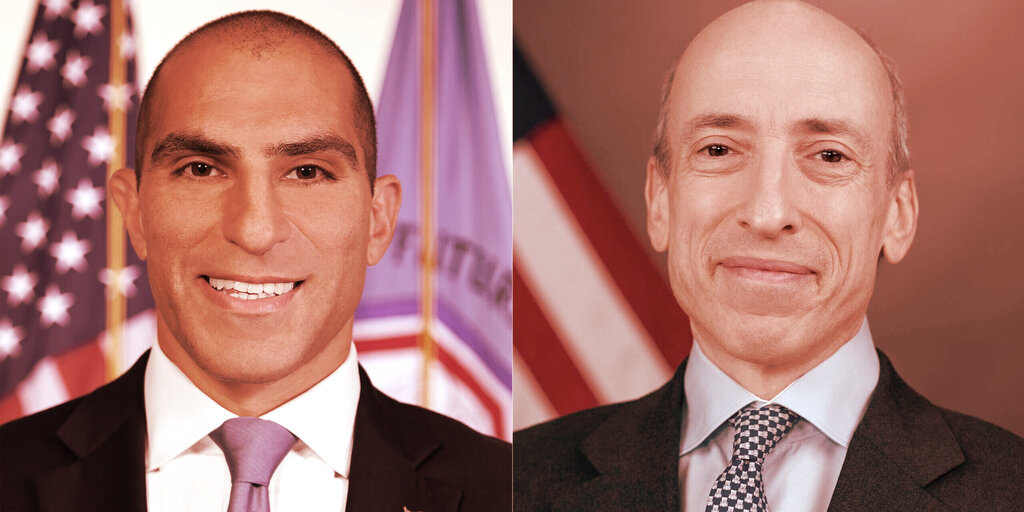Nobody is capable of regulating the money supply perfectly so as to avoid all unpleasantness. But an unregulated money supply is a complete disaster. And an unregulated market (which crypto is) is an open invitation to frauds, cheats, hustlers, and plain old crooks. Crypto is a thousand times worse than a well-regulated fiat monetary system. Everything that's bad about fiat is a thousand times worse with crypto.
You could've just stopped at "Nobody is capable of regulating the money supply".
What are you considering an unregulated money supply?
Give me one example, just one, of a pre-BTC unregulated money supply, and how it failed.
Are you talking about the barter system, African glass beads, shells, salt, what?
You clearly think that the USD is a "well regulated" system. Am I right? The lesser of all evils at least.
What are you considering the "bad" things about fiat, and how are those worse with Bitcoin? (not crypto, all of those are scams, we can agree on that)
So tell me a negative of fiat that is worse with Bitcoin.
Characteristics of Sound Money:
- Divisibility: Gold - bad: bars to coins, not easily divided
Fiat - better: USD: 1/100 of dollar = penny
BTC - best: bitcoin: 1/100,000,000 = satoshi
- Portability: Gold - bad: heavy, takes up a lot of space at volume
Fiat - better: paper is lighter, coins still heavy, electronic is good
BTC - best: completely portable, don't even need a wallet
- Widely accepted: Gold - good: would be accepted by most, if verified, if the government allows you to own it.
Fiat - good: each country has it's own, so finding acceptance is mostly regional.
USD better than most
BTC - better: limited global acceptance, albeit still growing faster than any other
- Scarce: Gold - better: the global supply of gold only grows at about 2% per year.
Fiat - bad: fiat money printing is non-stop and used whenever a government wants.
BTC - best: 21 million is all that will ever exist.
- Durable: Gold - better: stands the test of time, doesn't corrode, won't easily burn, melts to verify purity.
Fiat - bad: paper burns, coins have very little precious metal, electronic is centralized making it susceptible to hacks, scams, etc.
BTC - best: completely online, nothing physical to lose, steal, or damage.
- Stability of Value: Gold - better: historically held it's value very well, but does fluctuate.
Fiat - good/bad: short-term USD is typically stable, but historically bad as the USD has lost 99% of it's value since 1900. Non-USD has been even worse
BTC - bad/good: being such a new form of money, the fluctuations in value look wide in the short-term. Time will show as adoption grows, the highs and lows will lessen and if viewed on a chart from inception to current, it has a more steady upward trend in the long run.
Fiat:
- Big Brother regulated: you can't take $10k out of your bank without telling them why. And if they don't like your answer, they can deny giving you your own money. Do you really think that's because they want to stop fraud, terrorism, or "plain old crooks"? No, it's because they want to "control the flow of money". Right. The real reason is to put up road blocks on bank runs. Why? Because fractional reserve banking has made every bank in the world insolvent. They're very good at hiding it, but the truth is, they no longer are required to keep 10% reserves. If 10% of their customers all go in and ask for half of "their" money, the bank doesn't have it. Not just, we don't have it on site, they don't have it, period. It's not liquid, and most of it isn't remotely available. I could search for figures, but they exist.
Bitcoin:
- Uses an open-source software that is open to everyone, yet controlled by no one, because it doesn't need to be. It's a zero sum system. No one can manipulate it to benefit more than anyone else, without actual proof of work. Which isn't manipulation, it's used to secure the system, verify the system, and actually eliminate the fraud and bad apples.
Fiat:
- Highly manipulated by the Gov and Fed, leading to inflation (is bad, no matter what you think), which is theft to everyone who isn't close to the money printer (banks, lobbying corps).
For example, look at the price of TV's vs their capabilities. It has been nothing but deflationary. So why can't everything else where technology has improved it's efficiency, lowered it's production costs, be deflationary as well? It's because the Fed knows this house of cards economy structure is built on debt, and nothing else. Ever since 1971, we've lived in a proof-of-debt system. Banks create fiat out of thin air through loans made on fractional deposits. Without the constant creation of new debt, new fiat, the system crumbles.
High activity does not equal growth.
This system is built to encourage spending, discourage saving. That was not the case prior to 1971. A family with one income earner, usually without a college degree, could afford their own house, a car, 2.5 kids and a dog, and be able to retire with a pension and enough to live comfortably the rest of their life.
Now, 2 college degreed spouses live paycheck-to-paycheck just to get by. Forget buying a house, having kids, and retirement is disappearing without pensions. We have elderly people working in grocery stores into their 70's because they couldn't save money at the same rates as inflation, and their Wall Street-connected 401k only makes money for the brokers. So inflation steals their money's buying power more every single year.
Bitcoin:
- Deflationary because the supply is fixed at 21 million, never to be changed. This means it's value will go up over time, not down like every fiat in history. This also means people can actually start saving again, lowering their time preference and planning for the future. Unlike today, where you have to spend your fiat as fast as possible so you don't lose it's value. A sound, deflationary, money demands smarter decisions. Huge corporations don't work in a deflationary economy. We can go back to more "Mom & Pop" shops, more local micro-econ. Government also shrinks, because the out-of-control spending can't happen when when there's no money printer to bail them out.
Fiat:
- backed by guns, I mean, trust in the centralized Government. They are the only ones who can create it, protect it, steal it from other countries through war and political pressure, manipulate it, I mean, regulate it.
Bitcoin:
- backed by a vast network of decentralized computers running a program that runs 24/7, verifies all transactions, kicks out any "crooks", maintains the integrity of the reward system keeping it fair to all, and can't be shut down by anyone.












